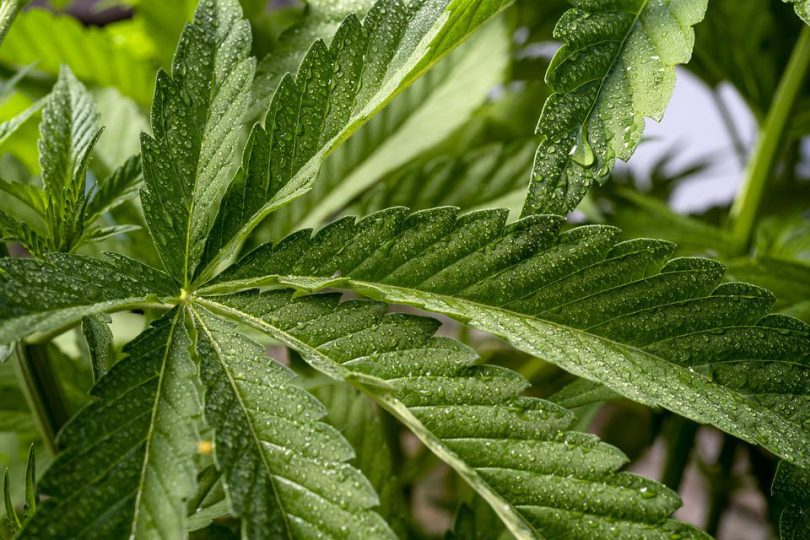What is CBDA?
Cannabidiolic Acid (CBDA) is a cannabinoid commonly found in cannabis. It is present in all types of cannabis. It converts to cannabidiol (CBD) through exposure to heat and/or sunlight in a process called decarboxylation. In fact, both tetrahydrocannabinol (THC) and CBD are found first as acids (THCA and CBDA respectively), both of which are not intoxicating.
While CBDA can be found in tinctures, capsules, and/or topicals, one easy way to get CBDA is by consuming raw cannabis. This can be done through smoothies, salads, or juice.
There are a variety of health benefits linked to cannabinoids consumption: many studies highlighted the positive effects of the synergistic action of cannabis constituents when consuming the whole cannabis inflorescence. However, scientists are continuing to study individual cannabinoids, including CBDA.
Benefits of CBDA
Similar to other cannabinoids, CBDA has antioxidant properties. According to one study by Dawidowicz, et al., “Cannabinoids exhibit antioxidant activity manifested in their ability to scavenge free radicals, to prevent the oxidation process and to reduce metal ions. Although the intensity of these activities is not the same for the individual cannabinoids it is comparable for all of them with that of E vitamin.” [1]
In a study by Rock, et al., CBDA in conjunction with tTHC effectively treated acute and anticipatory nausea in rats. The study showed the psychotropic effects of THC, but no mind altering effects were found for CBDA. Additionally, CBDA has the potential to reduce the intoxicating effects of THC when the two cannabinoids are combined at higher doses. [2]
When studies showed the impact of the endocannabinoid system on obesity,[3] it became apparent that certain cannabinoids would impact weight. THC is known to stimulate appetite, but research is still coming out on the impacts of other cannabinoids on weight gain versus loss.
CBDA is difficult to stabilize. However, “a new derivative, CBDA-O-methyl ester (HU-580, EPM301), was synthesized […]. EPM301 may have therapeutic potential for the treatment of both diet-induced obesity (DIO) and genetic-induced obesity (GIO),” according to a study by Ben-Cnaan, et al. [4]
Another benefit of CBDA is the potential ability to inhibit and/or treat COVID-19. [5].
Nevertheless more studies should be done in order to assess if the CBDA inhibitory activity can be potenziated by complex mixtures of plant extracts or if the enhanced effectivity is linked to cannabinoids taken individually.[5]
The pure amount of research already published in animal studies is promising enough to warrant the study of cannabinoids, specifically CBDA, in humans. Especially with the specific synthesized stabilized CBDA product (EMP301).
References:
[1] Dawidowicz, A.L. et al. CBG, CBD, Δ9-THC, CBN, CBGA, CBDA and Δ9-THCA as antioxidant agents and their intervention abilities in antioxidant action. Fitoterapia (2021) ; 152. Doi: 10.1016/j.fitote.2021.104915. [Journal impact factor=2.882] [Times cited=10]
[2] Rock, E.M.m et al. Effect of combined doses of Δ9-tetrahydrocannabinol (THC) and cannabidiolic acid (CBDA) on acute and anticipatory nausea using rat (Sprague- Dawley) models of conditioned gaping. Psychopharmacology (2015); 232 (4445-4454). Doi: 10.1007/s00213-015-4080-1. [Journal Impact Factor=3.424] [Times cited=29]
[3] Rossi, F., et al. Role of Cannabinoids in Obesity. International Journal of Molecular Sciences. (2018); 19(9). Doi: 10.3390/ijms19092690. [Journal Impact Factor=5.923] [Times cited=62]
[4] Ben-Cnaan, E. et al. The Metabolic Efficacy of a Cannabidiolic Acid (CBDA) Derivative in Treating Diet- and Genetic-Induced Obesity. International Journal of Molecular Sciences. (2022); 23(10), 5610; doi: 10.3390/ijms23105610. [Journal Impact Factor=5.923]
[5] Van Breemen, R.B., et al.Cannabinoids Block Cellular Entry of SARS-CoV-2 and the Emerging Variants. Journal of Natural Products. (2022); 85(1) 176–184. Doi: 10.1021/acs.jnatprod.1c00946. [Journal impact factor=4.05] [Times cited=13]
Image: https://pixabay.com/it/photos/cannabis-canapa-crescita-marijuana-6559813/










